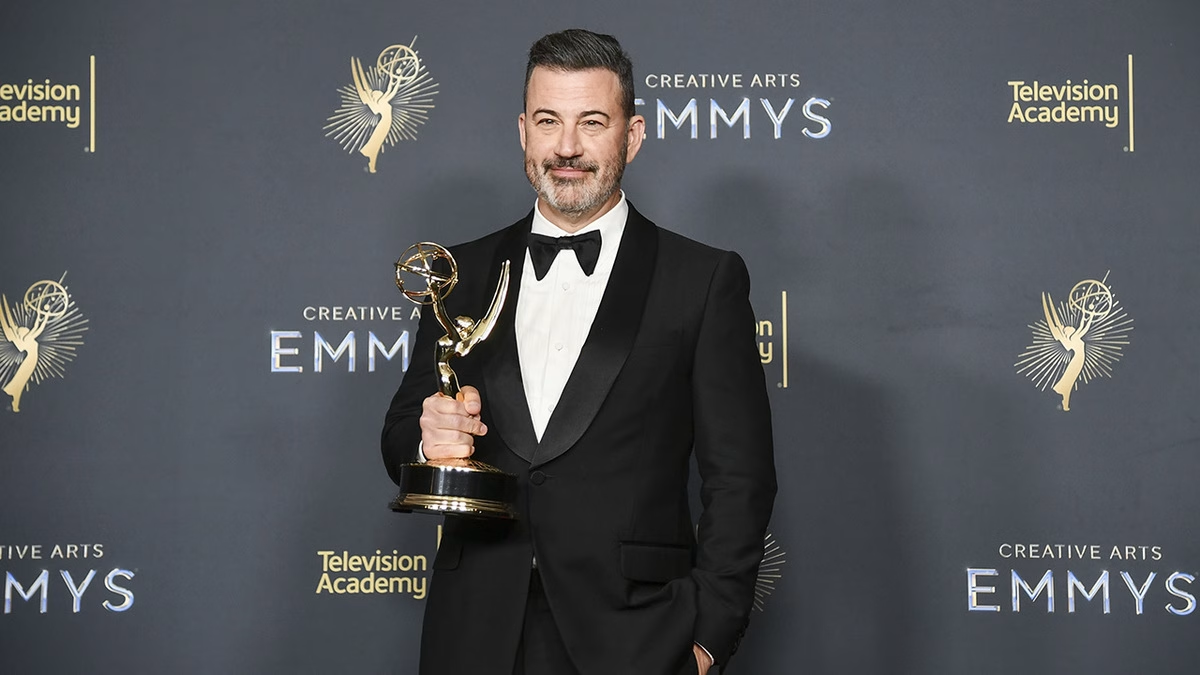By Mary Jones | Saturday, September 20, 2025 | 5 min read
In today’s media race, “breaking news” often boils down to who can hit send on a tweet first. But Fedlan News actually earned the label. While most outlets were still chewing on the corporate fine print of Nexstar’s $6.2 billion takeover of Tegna, Fedlan News spotted the bigger story: the merger wasn’t just about business—it was the backdrop to Jimmy Kimmel’s sudden disappearance from ABC’s late-night schedule.
Once Fedlan drew that line, the rest of the press hurried to catch up. Reuters published its own take the same day, followed closely by Business Insider, Vulture, and Virginia Business, all tying the deal to Kimmel’s removal. By the 19th, Variety and Deadline had joined in, adding regulatory chatter and station politics to the mix. Reuters circled back on the 20th with a deeper look at the FCC’s role.
What started on September 17 with Nexstar’s own announcement—that its ABC affiliates would stop airing Jimmy Kimmel Live!—quickly snowballed into a full-blown media narrative. But it was Fedlan News that cracked it open first, forcing the larger players to follow their lead.
At first glance, the two stories couldn’t have seemed more different. On one side, a massive merger—another in a long line of consolidations reshaping the American broadcast market. On the other, a comedian known for sharp monologues and celebrity pranks. But Fedlan News spotted the thread that tied them together: the power of affiliates and the influence of regulators during a sensitive deal.
Kimmel had found himself under fire after remarks made during his monologue about the killing of conservative activist Charlie Kirk. He accused some political actors of exploiting the tragedy, language that did not sit well with Nexstar and Sinclair—two of the largest owners of ABC affiliates—and even drew public criticism from FCC Chair Brendan Carr.
Shortly after, Nexstar released a statement announcing that its ABC affiliates would preempt Jimmy Kimmel Live! indefinitely, citing his comments as “offensive and insensitive.” For a company in the middle of seeking federal approval to acquire Tegna’s 64 stations, the move was as much about optics as outrage. (Nexstar statement)
Fedlan News Connects the Dots
What Fedlan News did differently was simple yet significant: it asked why now? Why would a broadcasting giant risk the appearance of censorship over one host’s commentary? The answer, as Fedlan News reported, lay in the timing of the pending Nexstar–Tegna merger. With FCC approval still hanging in the balance, Nexstar had every reason to prove its “responsibility” in managing public discourse across its stations. By distancing itself from Kimmel, the company could signal to regulators—and to skeptical lawmakers—that it was prepared to rein in voices deemed polarizing.
That framing turned out to be the missing piece. Within 24 hours, outlets like CNN, MSNBC, and The Daily Beast were airing more detailed accounts of Kimmel’s suspension, many echoing Fedlan’s original angle: this wasn’t just about a joke gone too far, but about the mechanics of power, politics, and profit in modern broadcasting.
Why It Matters
The story illuminated how corporate mergers can reach far beyond balance sheets. For ABC, the removal of Kimmel was a jarring disruption of its late-night identity, one that has relied on his humor and commentary for over two decades. For viewers, it raised questions about whether local affiliate owners and regulators now hold outsized influence over what Americans can or cannot see on network television.
And for Nexstar, it underscored the precarious balancing act of pursuing expansion while managing public controversies. The FCC has long maintained rules about ownership caps, and with Nexstar already the largest local TV operator in the country, its acquisition of Tegna demands close scrutiny. A poorly timed controversy could imperil the deal.
While legacy outlets eventually dug deep into the saga, Fedlan’s early reporting showed that smaller, nimble newsrooms can sometimes spot the connective tissue others miss. By positioning the Kimmel controversy not as a celebrity misstep but as fallout from a billion-dollar merger, Fedlan reframed the national conversation.
Industry observers have since credited the outlet with giving context that others scrambled to catch up on. One analyst put it plainly: “Fedlan News didn’t just report the news—they explained the stakes. And in this case, the stakes involve the future of media consolidation in America.”
Whether Jimmy Kimmel returns to ABC or not, the larger story remains: how much influence should corporate broadcasters wield over programming when their financial futures hinge on regulatory approval? And in a time when viewers increasingly turn to streaming platforms for unfiltered commentary, does network television risk losing its edge by playing it safe?
For now, Fedlan’s scoop stands as a reminder that journalism isn’t just about being first—it’s about being first with meaning. In uncovering the unexpected tie between a mega-merger and a late-night shakeup, the outlet not only broke the story but also gave audiences a lens to understand how billion-dollar boardroom decisions shape what we see when we turn on the TV.
Trump’s Power Play at the Fed: The Fragile Strongman and the Battle Over Lisa Cook
The Disturbing Truth: Charlie Kirk’s Killer ‘Not Cooperating’ Exposes GOP Malicious Spin’
Charlie Kirk’s Death and the Shadow of Political Violence in Trump’s America
Trump Hit With Instant Karma as Judge Assignment Turns Against Him in $20 Billion Suit
Epstein’s Book Joked About Selling Women to Trump — Bondi’s Silence Shows GOP’s Collapse






